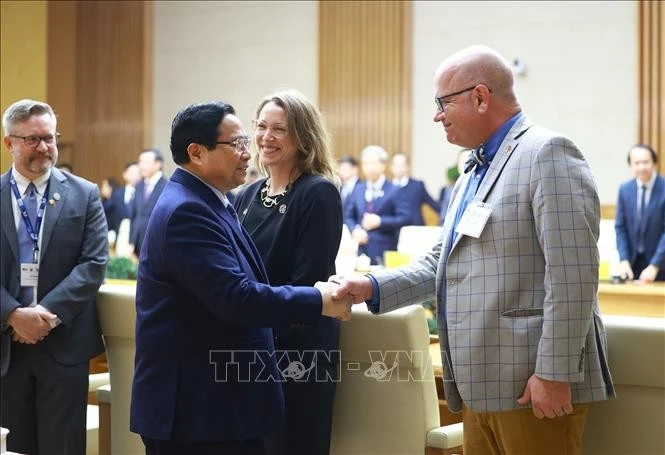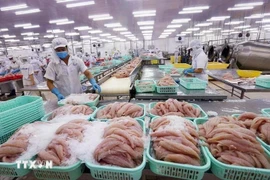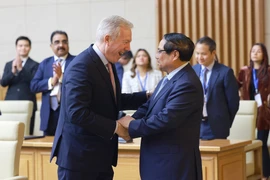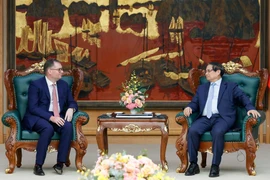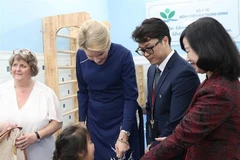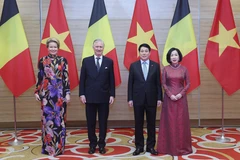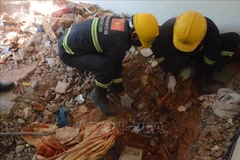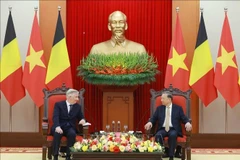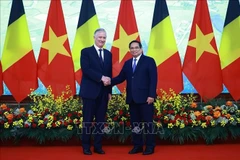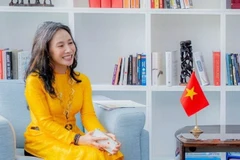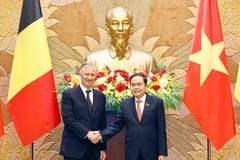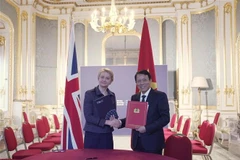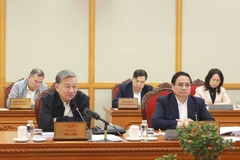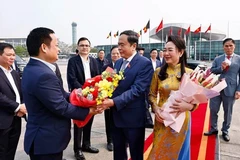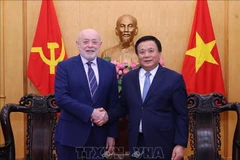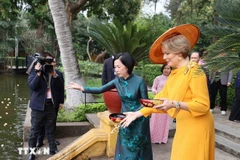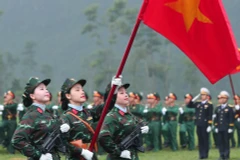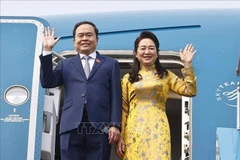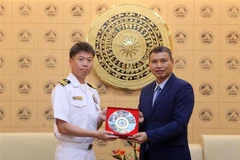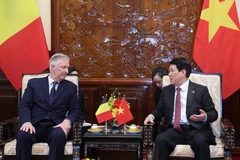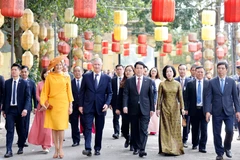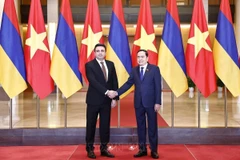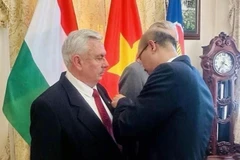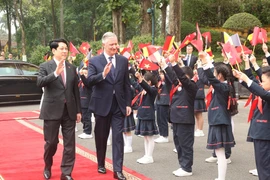Hanoi (VNA) – Prime Minister Pham Minh Chinh urged Vietnamese and US universities to strengthen cooperation in education and training through specific, sustainable, practical, long-term and effective projects while addressing a working session in Hanoi on March 31 with representatives of 21 leading US universities, who are participating in the International Academic Partnership Programme (IAPP) in Vietnam.
The PM underlined that these projects should focus on helping Vietnam develop human resources in emerging industries and effectively exploit marine, outer and underground spaces.
Highlighting the growth of the Vietnam-US relations over the past 30 years, the Vietnamese leader emphasised that the bilateral relationship has evolved from former adversaries to comprehensive strategic partners. The US supports a strong, independent, self-reliant and prosperous Vietnam, he said, adding that the two nations have set aside the past and headed towards the future while respecting differences.
Over the past 30 years, the Vietnam-US relationship has achieved significant milestones and become one of each other's leading partners. Among the most prominent achievements is the cooperation in education, training, science, technology, and innovation, which has become one of the key pillars of the bilateral relations.
Currently, there are about 30,000 Vietnamese students studying in the US, making Vietnam the fifth-largest source of international students in the US, he noted, adding that there are also about 50 joint training programmes between Vietnamese and US educational institutions, mainly at the undergraduate and graduate levels.
Emphasising that human resources, especially high-quality workforce, is one of the three focal points that Vietnam has defined in its national construction strategy, PM Chinh said that Vietnam has introduced many key policies and documents on the development of education and training, as well as science, technology, to fundamentally and comprehensively reform education, create breakthroughs in science and technology, foster innovation, and accelerate national digital transformation.
The country has committed to reserving up to 20% of its total state budget to education and training to improve the general knowledge of the people, train human resources, nurture talents, and promote well-rounded human development in terms of virtue, intellect, physical health, and beauty, he said, expressing his hope for continued cooperation with the US in this area.
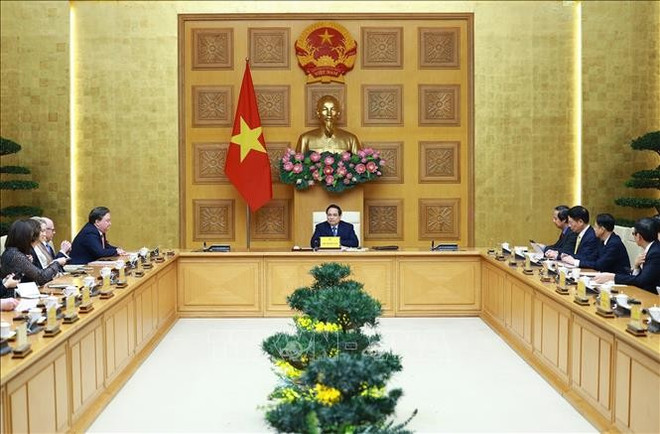
US Ambassador to Vietnam Marc E. Knapper and representatives of the US universities commended Vietnam’s strategic development, particularly in education and training, and expressed their readiness to collaborate with Vietnam in implementing socio-economic development strategies, especially in education, science, technology, innovation, and enhancing the quality of human resources, contributing to deepening the Vietnam-US comprehensive strategic partnership.
Regarding the potential and cooperation programmes between the two countries, US university representatives highlighted that IAPP 2025 aims to strategically connect Vietnamese universities with US counterparts. The programme focuses on supporting both sides in building effective, practical, and sustainable collaboration plans.
During the IAPP 2025 programme, representatives from 21 US universities and 30 Vietnamese universities exchanged ideas on cooperation in fields such as STEM, digital transformation, green transformation, ICT, semiconductors, AI, automation, biotechnology, advanced materials, green energy, international law, agriculture, sustainability, health, education, Southeast Asian studies, and Vietnamese language studies.
Representatives from universities of both sides asked for the Government’s support to strengthen education connections, including increasing student and lecturer exchanges, establishing joint training programmes, and promoting collaborative research projects.
PM Chinh said that as Vietnam aims for 8% economic growth in 2025 and double-digit expansion in following years, the country needs game-changing strategies, focusing on restructuring its administrative systems, improving public services for people and businesses, and leveraging science, technology, and innovation as key drivers for national development. In the process, education and training play a crucial role, he stressed.
Holding that cooperation between Vietnamese and US universities has not yet reached its full potential, he urged both sides to work closely to develop long-term, sustainable, and effective cooperation plans in diverse and creative forms, such as student and lecturer exchanges, joint training programmes, and collaborative research projects. He also suggested that the US consider expanding scholarships and reducing tuition fees for Vietnamese students and researchers.
The PM encouraged universities to exchange ideas and create cooperation programmes, particularly in high-tech sectors like AI, semiconductors, biotechnology, health, agriculture, foreign languages, and high-quality human resources training to meet the demands of both countries' businesses and industries.
He also called on leaders of the universities to advocate for the US Government’s recognition of Vietnam's market economy and the removal of restrictions on high-tech exports to Vietnam, to foster continued development in the bilateral relationship./.
